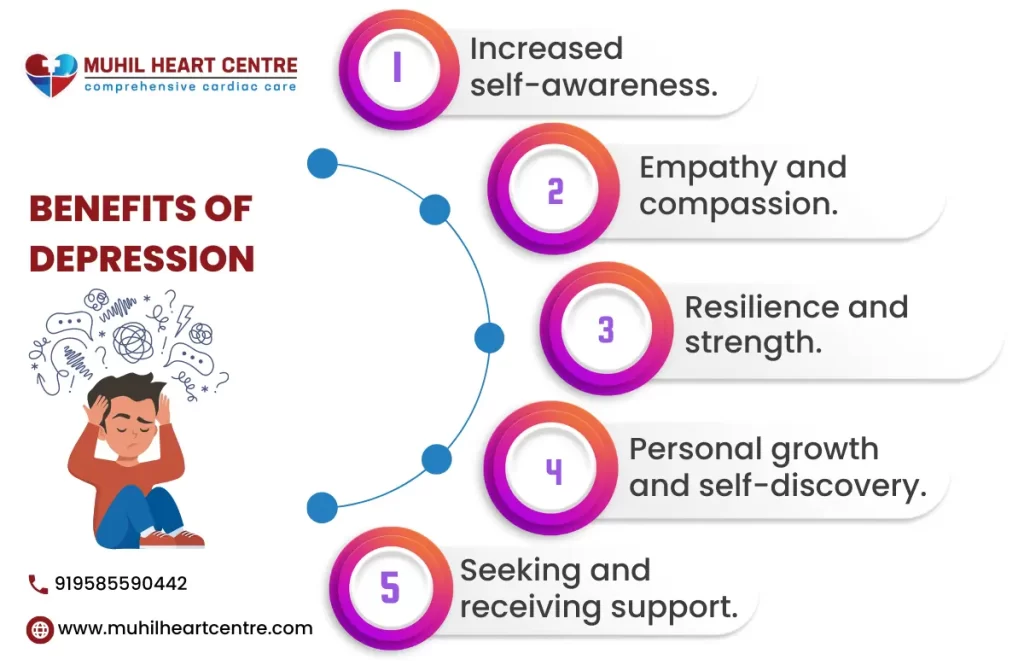Depression, anxiety, and sleeplessness are common mental health concerns that can significantly impact an individual’s overall well-being. Interestingly, research suggests a complex interplay between mental health and heart health. In this blog post, we will explore the link between depression, anxiety, sleeplessness, and heart problems including the depression treatment in Vellore.
Understanding this connection is crucial for recognizing the importance of mental health in cardiovascular well-being. By addressing mental health concerns, seeking appropriate support, and adopting healthy lifestyle practices, individuals can potentially reduce the risk of heart problems and improve their overall quality of life.
Depression and Heart Problems
Depression is not only a mood disorder; it can also have profound effects on cardiovascular health. Individuals with depression have an increased risk of developing heart problems such as heart disease, heart attacks, and heart failure and may require depression treatment in Vellore.
The exact mechanisms underlying this relationship are not fully understood, but it is believed that the physiological and behavioral changes associated with depression, such as inflammation, elevated stress hormones, unhealthy lifestyle choices (e.g., poor diet, lack of exercise), and social isolation, contribute to the development and progression of heart problems.

Anxiety and Heart Problems
Anxiety disorders, characterized by excessive worry, fear, and apprehension, can also impact heart health. People with anxiety may experience physical symptoms such as increased heart rate, elevated blood pressure, and chest tightness, which can put additional strain on the cardiovascular system. Chronic anxiety can also lead to unhealthy coping mechanisms, including smoking, overeating, or alcohol abuse, which can increase the risk of heart problems besides requiring depression treatment in Vellore.
Additionally, prolonged periods of anxiety can lead to chronic stress, which negatively affects heart health by contributing to inflammation, impaired blood vessel function, and increased vulnerability to cardiac events.
Sleeplessness and Heart Problems
Sleeplessness or insomnia is closely linked to heart problems. Poor sleep quality or insufficient sleep duration can disrupt various physiological processes that are essential for heart health. Lack of sleep has been associated with an increased risk of high blood pressure, irregular heart rhythms, and heart disease.
Sleep deprivation also affects metabolic function, leading to imbalances in hormones involved in regulating appetite, glucose metabolism, and inflammation, which can contribute to obesity, diabetes, and cardiovascular problems. Additionally, sleeplessness can exacerbate symptoms of depression and anxiety, further compounding the risk of heart problems and requiring depression treatment in Vellore.
The Bidirectional Relationship
Depression, anxiety, sleeplessness, and heart problems share a bidirectional relationship. On one hand, mental health conditions can increase the risk of heart problems. On the other hand, the presence of heart disease can contribute to the development or worsening of depression, anxiety, and sleep disorders.
The stress and emotional burden of managing a chronic condition can lead to psychological distress, while physical symptoms and limitations can disrupt sleep patterns. It is crucial to address both mental health and heart health by means of depression treatment in Vellore to break this cycle.
Types of Depression Treatment in Vellore
Depression is a complex and multifaceted mental health disorder that can manifest in various ways. Here are some of the common types of depression, each with its distinct characteristics and nuances that require depression treatment in Vellore.
Major Depressive Disorder (MDD)
Major Depressive Disorder, often referred to as clinical depression, is one of the most well-known forms of depression. It involves persistent feelings of sadness, low energy, and a loss of interest or pleasure in activities that were once enjoyable. Individuals with MDD may also experience changes in appetite, sleep disturbances, difficulty concentrating, feelings of worthlessness or guilt, and even thoughts of death or suicide.
Persistent Depressive Disorder (Dysthymia)
Persistent Depressive Disorder is a chronic form of depression that is characterized by a consistently low mood lasting for at least two years in adults (one year in adolescents and children). While the symptoms of persistent depressive disorder may not be as severe as those of major depressive disorder, they tend to linger over a longer period.
Bipolar Disorder (Manic Depression)
Bipolar disorder is a mood disorder that involves alternating periods of extreme mood shifts between depression and mania (elevated, hyperactive mood). The depressive episodes in bipolar disorder are similar to those seen in major depressive disorder. However, the distinguishing feature is the occurrence of manic or hypomanic episodes, which are characterized by high energy levels, impulsivity, racing thoughts, and decreased need for sleep.
Seasonal Affective Disorder (SAD)
Seasonal Affective Disorder is a type of depression that typically occurs during specific seasons, most commonly the fall and winter months when daylight hours are shorter. Symptoms include low energy, increased sleep, weight gain, social withdrawal, and a general feeling of sadness. SAD is believed to be linked to changes in natural light exposure and the disruption of the body’s internal clock (circadian rhythm).
Postpartum Depression (PPD)
Postpartum Depression usually occurs after childbirth. It’s not uncommon for new parents, particularly mothers, to experience mood swings and feelings of sadness in the weeks following childbirth. However, postpartum depression goes beyond the “baby blues” and involves more severe and persistent symptoms.
Psychotic Depression
Psychotic Depression is a severe form of depression accompanied by psychotic symptoms such as delusions (false beliefs) and hallucinations (perceiving things that aren’t there). These symptoms can be distressing and may involve themes of guilt, nihilism, or personal inadequacy. Psychotic depression requires specialized treatment and is often associated with a higher risk of self-harm or suicide.
Atypical Depression
Atypical Depression is characterized by a unique set of symptoms that may include mood reactivity (temporary mood improvement in response to positive events), increased appetite or weight gain, excessive sleep, heavy limbs, and heightened sensitivity to rejection. Unlike typical depression where positive events don’t usually improve mood, atypical depression is known for its “reversible” mood responses to positive stimuli.
If you or someone you know is struggling with depression, seeking professional help for depression treatment in Vellore is essential for accurate assessment and appropriate management.
Symptoms of Depression
Depression is a mental health disorder marked by enduring emotions of sadness, despair, and a diminished interest or enjoyment in activities. It can affect a person’s thoughts, feelings, and daily functioning. It’s important to note that individuals may experience depression differently, and symptoms can vary in severity. Common symptoms of depression include:
Persistent Sadness or Low Mood:
Feeling consistently sad, down, or empty, often without a clear reason.
Loss of Interest or Pleasure:
Anhedonia, or a significant reduction in interest or enjoyment in activities that were once pleasurable, including hobbies or social interactions.
Changes in Sleep Patterns:
Sleep disturbances, either in the form of insomnia (challenges with falling asleep or maintaining sleep) or hypersomnia (excessive sleeping).
Changes in Appetite or Weight:
Substantial alterations in appetite that result in either weight loss or weight gain.
Fatigue or Lack of Energy:
Persistent feelings of tiredness, low energy, and a general sense of fatigue.
Feelings of Worthlessness or Guilt:
Persistent negative thoughts about oneself, feelings of inadequacy, guilt, or worthlessness.
Conclusion
Recognizing the link between depression, anxiety, sleeplessness, and heart problems is essential for comprehensive healthcare. Individuals experiencing these mental health symptoms should prioritize their heart health by seeking appropriate medical attention at Muhil Heart Centre besides practicing stress-management techniques, adopting healthy lifestyle habits, and fostering a strong support system.
By addressing mental health concerns and adopting a holistic approach to getting the best depression treatment in Vellore, individuals can potentially reduce the risk of heart problems and improve their overall quality of life. Remember, taking care of the mind is just as crucial as taking care of the heart.
Read also Diet for Heart Patients in Vellore.


